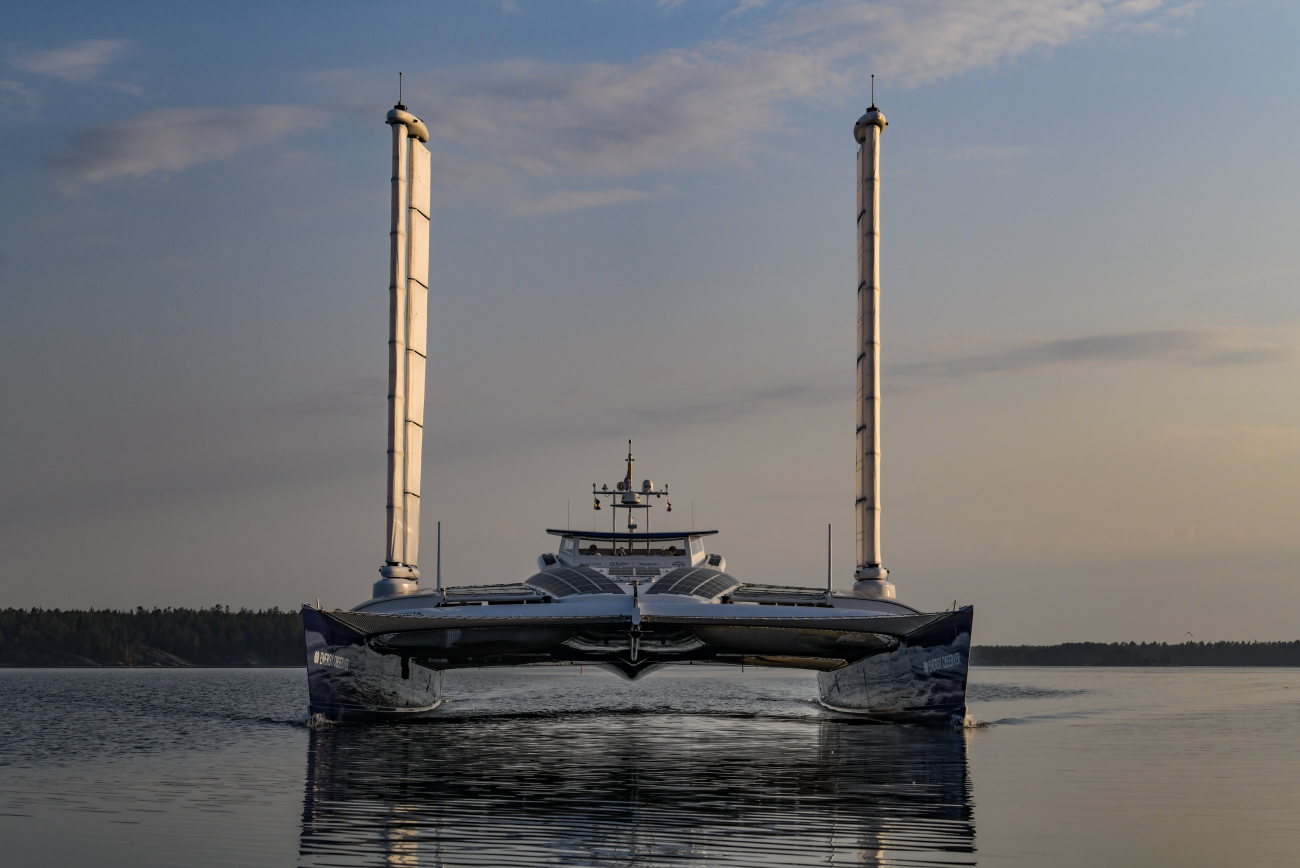Energy Observer combines both expeditions and innovations, whilst developing solutions, which prove that another future for energy is possible, an optimistic future that is more respectful of the planet and the people who live there.
The Energy Observer project was created in 2013 through the commitment of Victorien Erussard, an offshore racer and merchant navy officer, with a single aim: to build the first autonomous vessel capable of drawing its energy from nature whilst preserving it.
This vessel has been designed to push the envelope with regards to zero emission technologies. From hydrogen to sun, wind and tidal power, all manner of solutions have been experimented with, tested and optimised here with a view to making clean energies a practical reality that is accessible to all.
Criss-crossing the oceans for 7 years without creating atmospheric or noise pollution amidst the marine ecosystems, Energy Observer makes stopovers in numerous metropolises and capitals in a bid to meet up with the women and men, who are devoting their energy to the creation of sustainable solutions for a more harmonious world. This mission is all the more essential in a world where humanity has realised how absolutely vital it is to protect ecosystems and respect the Living world.
The primary French ambassador for the 17 Sustainable Development Goals set by the UN, the mission supported by the Energy Observer involves taking action, raising awareness and passing on knowledge and solutions to the widest possible audience in a bid to offer a response to the challenges of energy and ecological transition.

17 Goals, a genuine road map for the post-Covid world
In September 2015, the 193 member states of the United Nations adopted the Agenda 2030 sustainable development program, entitled Agenda 2030. It carries a vision of transforming our world by eradicating poverty and ensuring its transition to sustainable development. It is organized around the «5Ps», in the service of the planet, people, prosperity, peace and partnerships.
The 17 objectives describe the ideal horizon for 2030 of sustainable development that implies social justice as well as economic growth, peace, solidarity and the preservation of ecosystems. The 17 Sustainable Development Goals (SDGs) are to be achieved collectively and implemented by both industrialized and developing countries. Within the context of the current health crisis, there is no doubt that there will be a before and after. This umpteenth warning shows us that we need to make serious changes to our models and behaviours.
The 17 SDGs appear to be the best possible roadmap for us to follow. Indeed, experts and managers of all nationalities working on the effects of the crisis and the preparation for tomorrow’s world have been issuing stark reminders on the subject over recent months.
Poverty, inequality, environmental degradation, global warming. Sometimes, the present seems quite dark. However, a better future exists. A future that goes hand in hand with prosperity, peace and justice for all. Together, we can write this future, guided by the Sustainable Development Goals. Seventeen goals to change our world.
Solutions, the web-series of those who want to transform the world
All over the world, women and men are devoting their energy to creating sustainable solutions for a more harmonious world. Energy Observer sails to meet them, to promote their ideas and actions. Access to clean and affordable energy to build sustainable cities and communities, innovations in the circular economy and responsible consumption, vectors of employment and economic growth, access to quality education to ensure gender equality and create a more just world, the transition to sustainable and responsible agriculture, an opportunity to fight hunger in the world, and protect terrestrial and aquatic life, etc.
All these solutions are brought together for the first time on the Energy Observer Solutions platform and illustrated through videos made under the prism of the 17 Sustainable Development Goals, in conjunction with the Ministry of Ecological Transition, the United Nations Sustainable Development Solutions Network (SDSN) created in 2012 under the auspices of the UN Secretary General, the International Association of Universities (IAU), Ademe and UNESCO.

